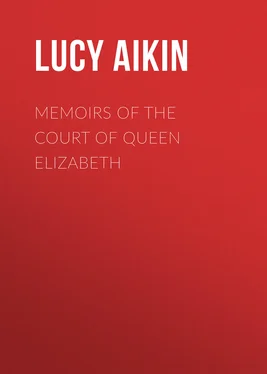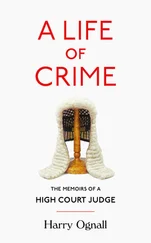Lucy Aikin - Memoirs of the Court of Queen Elizabeth
Здесь есть возможность читать онлайн «Lucy Aikin - Memoirs of the Court of Queen Elizabeth» — ознакомительный отрывок электронной книги совершенно бесплатно, а после прочтения отрывка купить полную версию. В некоторых случаях можно слушать аудио, скачать через торрент в формате fb2 и присутствует краткое содержание. Жанр: foreign_prose, История, foreign_edu, foreign_antique, на английском языке. Описание произведения, (предисловие) а так же отзывы посетителей доступны на портале библиотеки ЛибКат.
- Название:Memoirs of the Court of Queen Elizabeth
- Автор:
- Жанр:
- Год:неизвестен
- ISBN:нет данных
- Рейтинг книги:4 / 5. Голосов: 1
-
Избранное:Добавить в избранное
- Отзывы:
-
Ваша оценка:
- 80
- 1
- 2
- 3
- 4
- 5
Memoirs of the Court of Queen Elizabeth: краткое содержание, описание и аннотация
Предлагаем к чтению аннотацию, описание, краткое содержание или предисловие (зависит от того, что написал сам автор книги «Memoirs of the Court of Queen Elizabeth»). Если вы не нашли необходимую информацию о книге — напишите в комментариях, мы постараемся отыскать её.
Memoirs of the Court of Queen Elizabeth — читать онлайн ознакомительный отрывок
Ниже представлен текст книги, разбитый по страницам. Система сохранения места последней прочитанной страницы, позволяет с удобством читать онлайн бесплатно книгу «Memoirs of the Court of Queen Elizabeth», без необходимости каждый раз заново искать на чём Вы остановились. Поставьте закладку, и сможете в любой момент перейти на страницу, на которой закончили чтение.
Интервал:
Закладка:
What this impediment, real or pretended, might be, we only learn from a public declaration made immediately afterwards by the earl of Northumberland, stating, that whereas it had been pretended, that a precontract had subsisted between himself and the late queen, he has declared upon oath before the lords of the council, and taken the sacrament upon it, that no such contract had ever passed between them. In explanation of this protest, the noble historian of Henry VIII. 1 1 Lord Herbert of Chirbury.
furnishes us with the following particulars. That the earl of Northumberland, when lord Percy, had made proposals of marriage to Anne Boleyn, which she had accepted, being yet a stranger to the passion of the king; that Henry, unable to bear the idea of losing her, but averse as yet to a declaration of his sentiments, employed Wolsey to dissuade the father of lord Percy from giving his consent to their union, in which he succeeded; the earl of Northumberland probably becoming aware how deeply the personal feelings of the king were concerned: that lord Percy, however, refused to give up the lady, alleging in the first instance that he had gone too far to recede with honor; but was afterwards compelled by his father to form another matrimonial connexion. It should appear by this statement, that some engagement had in fact subsisted between Northumberland and Anne; but there is no necessity for supposing it to have been a contract of that solemn nature which, according to the law as it then stood, would have rendered null the subsequent marriage of either party. The protestation of the earl was confirmed by the most solemn sanctions; which there is no ground for supposing him capable of violating, especially as on this occasion, so far from gaining any advantage by it, he was likely to give high offence to the king. If then, as appears most probable, the confession by which Anne Boleyn disinherited and illegitimatised her daughter was false; a perjury so wicked and cowardly must brand her memory with everlasting infamy:—even should the contrary have been the fact, the transaction does her little honor; in either case it affords ample justification to that daughter in leaving, as she did, her remains without a monument and her conduct without an apology.
The precarious and equivocal condition to which the little Elizabeth was reduced by the divorce and death of her mother, will be best illustrated by the following extracts of a letter addressed soon after the event, by lady Bryan her governess, to lord Cromwel. It may at the same time amuse the modern reader to remark the minute details on which, in that day, the first minister of state was expected to bestow his personal attention.
"…My lord, when your lordship was last here, it pleased you to say, that I should not mistrust the king's grace, nor your lordship. Which word was more comfort to me than I can write, as God knoweth. And now it boldeneth me to show you my poor mind. My lord, when my lady Mary's grace was born, it pleased the king's grace to [appoint] me lady mistress, and made me a baroness. And so I have been to the children his grace have had since.
"Now, so it is, my lady Elizabeth is put from that degree she was afore; and what degree she is at now, I know not but by hearsay. Therefore I know not how to order her, nor myself, nor none of hers that I have the rule of; that is, her women and her grooms. Beseeching you to be good lord to my lady and to all hers; and that she may have some rayment. For she hath neither gown, nor kirtle, nor petticoat, nor no manner of linen, nor foresmocks, nor kerchiefs, nor sleeves, nor rails, nor body-stitchets, nor mufflers, nor biggins. All these, her grace's mostake 2 2 This is a word which I am utterly unable to explain; but it is thus printed in Strype's "Memorials," whence the letter is copied.
, I have driven off as long as I can, that, by my troth, I cannot drive it no lenger. Beseeching you, my lord, that you will see that her grace may have that is needful for her, as my trust is ye will do—that I may know from you by writing how I shall order myself; and what is the king's grace's pleasure and yours, that I shall do in every thing.
"My lord, Mr. Shelton saith he is the master of this house: what fashion that shall be, I cannot tell; for I have not seen it before.—I trust your lordship will see the house honourably ordered, howsomever it hath been ordered aforetime.
"My lord, Mr. Shelton would have my lady Elizabeth to dine and sup every day at the board of estate. Alas! my lord, it is not meet for a child of her age to keep such rule yet. I promise you, my lord, I dare not take it upon me to keep her in health and she keep that rule. For there she shall see divers meats and fruits, and wine: which would be hard for me to restrain her grace from it. Ye know, my lord, there is no place of correction there. And she is yet too young to correct greatly. I know well, and she be there, I shall nother bring her up to the king's grace's honour, nor hers; nor to her health, nor my poor honesty. Wherefore I show your lordship this my desire. Beseeching you, my lord, that my lady may have a mess of meat to her own lodging, with a good dish or two, that is meet for her grace to eat of.
"God knoweth my lady hath great pain with her great teeth, and they come very slowly forth: and causeth me to suffer her grace to have her will, more than I would. I trust to God and her teeth were well graft, to have her grace after another fashion than she is yet: so as I trust the king's grace shall have great comfort in her grace. For she is as toward a child, and as gentle of conditions, as ever I knew any in my life. Jesu preserve her grace! As for a day or two at a hey time, or whensomever it shall please the king's grace to have her set abroad, I trust so to endeavour me, that she shall so do, as shall be to the king's honour and hers; and then after to take her ease again.
"Good my lord, have my lady's grace, and us that be her poor servants in your remembrance.
" From Hunsdon ." (No date of time.)
On the day immediately following the death of the unfortunate Anne Boleyn, the king was publicly united in marriage to Jane Seymour; and an act of parliament soon after passed by which the lady Elizabeth was declared incapable of succeeding to the crown, which was now settled on the offspring of Henry by his present queen.
CHAPTER II
Vague notions of hereditary succession to the English throne.—Henry's jealousy of the royal family.—Imprisonment of lord T. Howard and lady M. Douglas.—After-fortunes of this lady.—Princess Mary reconciled with her father.—Dissolution of monasteries proceeds.—Insurrections in Lincolnshire and Yorkshire.—Remarkable trait of the power of the nobles.—Rebellion of T. Fitzgerald.—Romantic adventures of Gerald Fitzgerald.—Birth of prince Edward.—Death of the queen.—Rise of the two Seymours.—Henry's views in their advancement.—His enmity to cardinal Pole.—Causes of it.—Geffrey Pole discloses a plot.—Trial and death of lord Montacute, the marquis of Exeter, sir Edward Nevil, and sir N. Carew.—Particulars of these persons.—Attainder of the marchioness of Exeter and countess of Salisbury.—Application of these circumstances to the history of Elizabeth.—Decline of the protestant party.—Its causes.—Cromwel proposes the king's marriage with Anne of Cleves.—Accomplishments of this lady.—Royal marriage.—Cromwel made earl of Essex.—Anger of the Bourchier family.—Justs at Westminster.—The king determines to dissolve his marriage.—Permits the fall of Cromwel.—Is divorced.—Behaviour of the queen.—Marriage of the king to Catherine Howard.—Ascendency of the papists.—Execution of the countess of Salisbury—of lord Leonard Grey.—Discovery of the queen's ill-conduct.—Attainders passed against her and several others.
Читать дальшеИнтервал:
Закладка:
Похожие книги на «Memoirs of the Court of Queen Elizabeth»
Представляем Вашему вниманию похожие книги на «Memoirs of the Court of Queen Elizabeth» списком для выбора. Мы отобрали схожую по названию и смыслу литературу в надежде предоставить читателям больше вариантов отыскать новые, интересные, ещё непрочитанные произведения.
Обсуждение, отзывы о книге «Memoirs of the Court of Queen Elizabeth» и просто собственные мнения читателей. Оставьте ваши комментарии, напишите, что Вы думаете о произведении, его смысле или главных героях. Укажите что конкретно понравилось, а что нет, и почему Вы так считаете.












